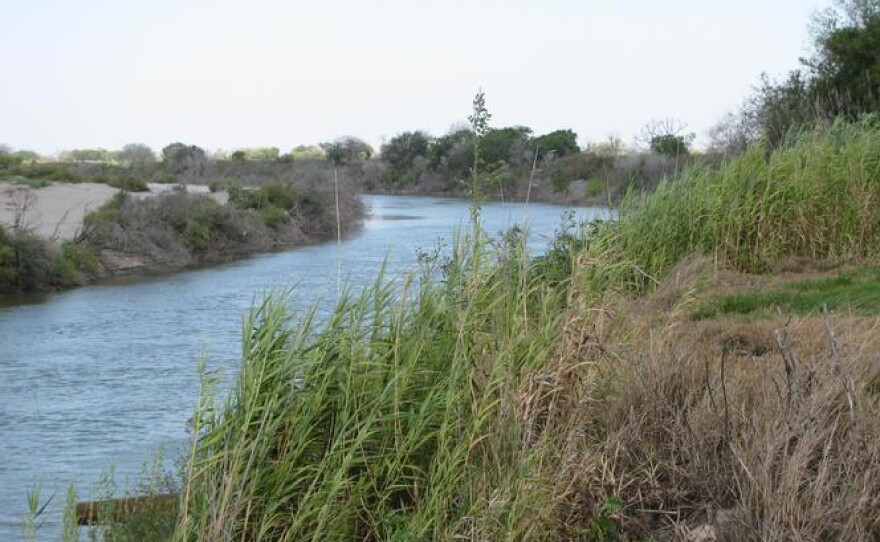Craig Teplicek has farmed 3,600 acres just a few miles from the Rio Grande River since the 1980s. He’s used to illegal immigrants trekking through his land. But in the last couple of years, his sunflower fields have turned into a war zone, he lamented.
“They use our place as a getaway when they’re getting chased because it’s all sandy and caliche road,” Teplicek said. “They can get far enough ahead of the law that they’ll drive through the fence and then everybody bail out.”
The danger has increased because illegal immigration now overlaps with the drug war. Teplicek has no idea anymore who is crossing his land.
The turmoil has prompted even Todd Staples, the Texas Agriculture Commissioner — and candidate for lieutenant governor — to speak out. It’s not in his job description, he said, but he can’t look the other way when private property is being trampled.
“I was forced into this role by land owners that came to me pleading for help in order to protect them and their families and their property,” Staples said.
He has written President Obama three times in recent months. His latest dispatch argued that spillover violence is now impacting the otherwise valuable border real estate market. Abundant riverfront properties that a few years ago would have been snapped up by farmers and ranchers now sit empty.
It’s all making realtor Terry Urdal — based in McAllen, TX less than 10 miles from the Rio Grande — throw his arms up in the air in frustration.
“Oh, it’s hurting my business a lot, yeah,” he said. “You know, I’ve got $3 million in property there on the river that I can’t sell.”
Whether it’s reality or just perception, interested buyers abruptly end the conversation as soon as they hear the land is on the banks of the Rio Grande. Urdal has five properties he hasn’t been able to sell for over a year. And that’s even after cutting the asking price by half.
One is a 500-acre beauty right next to a natural wildlife refuge.
“The property’s fantastic. It’s in the delta area, you know, that gets fertilization from the river and everything,” Urdal said. “But no one wants to risk buying it and getting in the way of the drug runners.”
The realtor continued: “They hijack tractors, they hijack people with cars. These are the worst kind of people you can imagine.”
No one knows for sure how much land sits unsold. There’s no state database that tracks real estate sales along the border. But most realtors in South Texas are well aware of the problem. Buyers seem to draw an imaginary cut-off line.
“We’re not having problems with it up here. You get down to two or three counties below San Antonio and that’s where you start having people tell you: ‘Well, that’s a little further south than I want to go,’” said Shawn Smith. He has properties all across the region, but focuses on counties just south of San Antonio.
Teplicek, the border farmer, hopes things will get better. But he has seen neighbors pack up and he’s getting pressure at home to also move.
“Yeah, well, that’s my wife’s thinking, that we ought to just sell and leave,” he said.
But even if he didn’t face the current market challenge given his location, Teplicek said he’s not one to be easily intimidated. He pledged to stay put as long as he can.
“It’s everybody’s civic duty to help out, don’t just turn and run right away,” Teplicek said. “Hell, we have young kids, 18, 19 years old overseas fighting and giving up their lives and we’re over here on our homeland and people are turning tail and running.”
But the bloodshed is unlikely to taper off anytime soon. It’s already six years since Mexican President Felipe Calderón — now in his last year in office — openly declared war on powerful drug cartels.
The impact of the drug war continues its expansion into more areas of Texas culture.
The long-time tradition of hunting may be the next victim. The Texas Wildlife Association said this year there’s a notable decrease in hunting leases given out on private ranches in South Texas.
The association said hunters fear encountering armed drug traffickers out in the brush. In fact, the nonprofit group is dedicating the cover story of the upcoming issue of its monthly magazine to this controversy.






